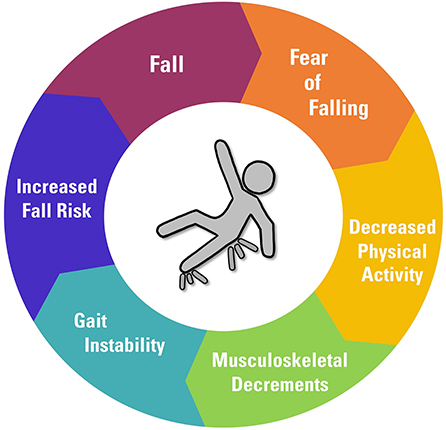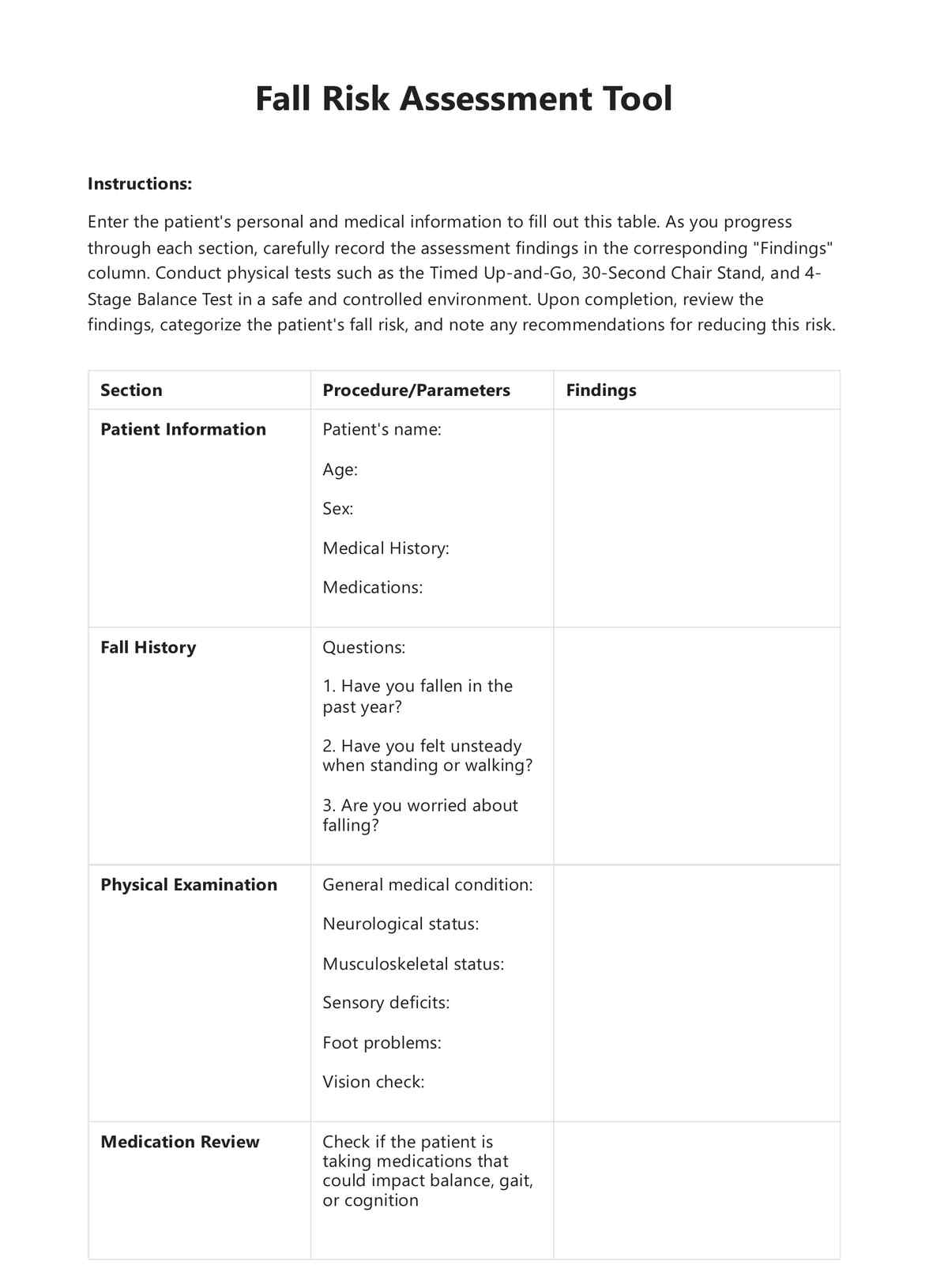Dementia Fall Risk Fundamentals Explained
Dementia Fall Risk Fundamentals Explained
Blog Article
Dementia Fall Risk Fundamentals Explained
Table of Contents9 Simple Techniques For Dementia Fall RiskIndicators on Dementia Fall Risk You Should KnowSome Known Factual Statements About Dementia Fall Risk Some Of Dementia Fall RiskAn Unbiased View of Dementia Fall Risk
In the neighborhood, inadequate street illumination or unprotected creeks and landfills may additionally cause crashes. Falls Risk Analysis Device (FRAT) is a 4-item falls-risk testing device for sub-acute and domestic care. The FRAT has three areas: fall risk status, danger factor list, and action plan. A Loss Threat Status consists of information about background of recent falls, medications, mental and cognitive standing of the client.If the client scores on a danger variable, the matching number of points are counted to the individual's loss danger score in package to the far right. If an individual's fall danger score amounts to five or higher, the individual goes to high threat for drops. If the person ratings just 4 factors or lower, they are still at some danger of dropping, and the nurse should utilize their finest clinical evaluation to take care of all fall threat aspects as part of an alternative treatment strategy.
These typical techniques, generally, assist create a risk-free atmosphere that lowers unintentional drops and marks core safety nets for all individuals. Indicators are vital for people in danger for drops. Doctor need to acknowledge who has the problem, for they are in charge of executing activities to promote patient safety and stop drops.
Excitement About Dementia Fall Risk
Wristbands should consist of the person's last and initial name, date of birth, and NHS number in the UK. Just red color must be used to signify special client condition.
Items that are also much may need the client to reach out or ambulate unnecessarily and can possibly be a hazard or contribute to falls. Assists avoid the individual from going out of bed without any kind of support. Nurses respond to fallers' telephone call lights quicker than they do to lights initiated by non-fallers.
Visual disability can substantially create falls. Hip pads, when used correctly, might minimize a hip crack when fall happens. Maintaining the beds closer to the floor decreases the threat of drops and significant injury. Positioning the mattress on the flooring dramatically minimizes autumn danger in some medical care settings. Low beds are developed to decrease the range a patient falls after moving out of bed.
9 Easy Facts About Dementia Fall Risk Explained
Patients that are tall and with weak leg muscles that try to rest on the bed from a standing placement are most likely to fall onto the bed due to the fact that it's as well low for them to decrease themselves safely. find here Likewise, if a tall client efforts to rise from a reduced bed without aid, the client is most likely to drop back down onto the bed or miss out on the bed and drop onto the flooring.
They're designed to advertise prompt rescue, not to stop drops from bed. Audible alarms can likewise advise the person not to rise alone. Making use of alarms can additionally be an alternative to physical restrictions. In addition to bed alarms, enhanced supervision for risky patients additionally may help avoid drops.

People with an evasion stride increase autumn opportunities dramatically. To decrease loss risk, footwear must be with a little to no heel, slim soles with slip-resistant tread, and sustain the ankles. Recommend individual to make use of nonskid socks to avoid the feet from sliding upon standing. Nonetheless, encourage people to wear ideal, well-fitting shoesnot nonskid socks for ambulation.
What Does Dementia Fall Risk Do?
In a research, homes with adequate lighting record less falls (Ramulu et al., 2021). Renovation in lighting at home might minimize loss rates in older adults.

Caretakers work for assuring a safe, protected, and secure atmosphere. Studies showed extremely low-certainty proof that caretakers decrease loss danger in severe care medical facilities and only moderate-certainty that alternatives like video monitoring can decrease sitter use without increasing fall risk, suggesting that sitters are not as beneficial as at first believed (Greely et al., 2020).
3 Easy Facts About Dementia Fall Risk Described

Boosted physical conditioning lowers the threat for falls and limits injury that is sustained when autumn takes place. Land and water-based exercise programs may be likewise advantageous on balance and stride and therefore lower the risk for falls. Water exercise may contribute a favorable benefit on balance and gait for ladies 65 years and older.
Chair Increase Exercise is a basic sit-to-stand exercise that aids reinforce the muscles in the thighs and butts and boosts wheelchair and freedom. The objective is to do Chair Increase workouts without making use of hands as the client ends up being more powerful. See sources area for a comprehensive guideline on how to perform Chair Increase workout.
Report this page